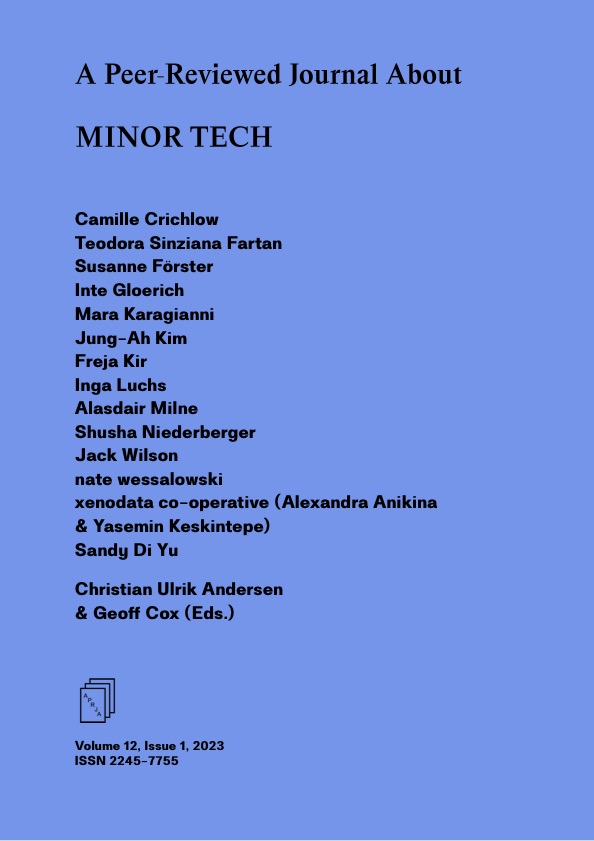Spirit Tactics
(Techno)magic as Epistemic Practice in Media Arts and Resistant Tech
DOI:
https://doi.org/10.7146/aprja.v12i1.140441Keywords:
(techno)magic, media arts, feminist technoscience, epistemic practice, resistant tech, diagrams, ritualsAbstract
Speculative narratives of (techno)magic such as those offered by feminist technoscience, cyberwitches and techno-shamanism come from knowledge systems long marginalised in a hyper-optimised and hard-science-reliant capitalist discourse. Aiming to de-centre Western rational imaginaries of technology, they speak from decolonial and translocal perspectives, in which the relations between humans and technology are reconfigured in terms of care, relationality and multiplicity of epistemic positions. In this paper, we consider (techno)magic as an act of transgressing a knowledge system plus relational ethics plus capacity to act beyond the constraints of the current capitalist belief system. (Techno)magic is about disentangling from commodified forms of belief and knowledge and instead cultivating solidarity, relationality, common spaces and trust with non-humans: becoming-familiar with the machine. What critical approaches, epistemic and aesthetic procedures do these speculative practices enable in media art and resistant tech? In what ways does “magic” act as an alternative political imaginary in the age of hegemonic Western epistemologies? Drawing on feminist STS and the works of artists such as Choy Ka Fai, Omsk Social Club, Ian Cheng, Suzanne Treister and others, we propose to address (techno)magic seriously as an ethical and epistemic practice.
Downloads
Published
Issue
Section
License
Copyright (c) 2023 xenodata co-operative, Alexandra Anikina, Yasemin Keskintepe

This work is licensed under a Creative Commons Attribution-NonCommercial-ShareAlike 4.0 International License.
Copyrights are held by the individual authors of articles.
Unless stated otherwise, all articles are published under the CC license: ‘Attribution-NonCommercial-ShareAlike’.
The journal is free of charge for readers.
APRJA does not charge authors for Article Processing Costs (APC)


